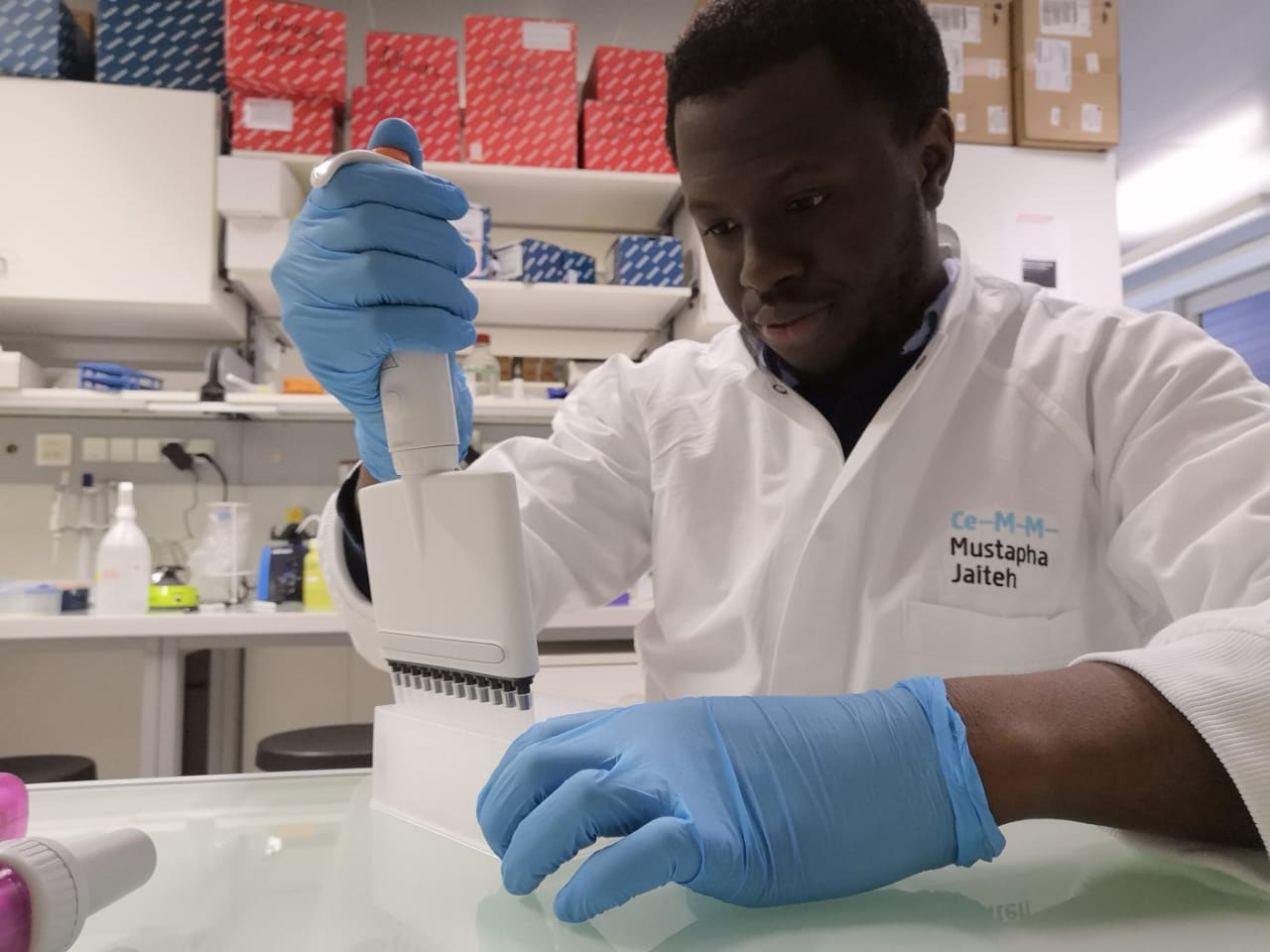
The young scientist Mustapha Jaiteh from CeMM (Research Center for Molecular Medicine of the Austrian Academy of Sciences) has won the recognition prize at Immunis 2021. We asked around.
1. Since the Immunis award ceremony, almost a year has passed. What did recognition prize mean to you?
Mustapha Jaiteh: I believe the first year of a PhD is a crucial moment, it is a period that requires a lot of planning and brainstorming. It is during this period that you formulate your main research question and hypothesis. Therefore, receiving the recognition prize during the initial stages of my PhD gave me a sense of validation and assurance as I had my project proposal peer reviewed by experts in the field. This prize meant that I was moving towards the right direction with my project. This sort of validation is very crucial and would be highly appreciated by any early-stage PhD student.
2. Thanks to the Immunis, you had the opportunity to present your project at the ÖGAI conference in the NGI session. Which input from the discussion could you take with you?
Mustapha Jaiteh: The discussions after my presentation at the ÖGAI conference was very warm and helpful. The range of which was quite broad, from conceptual to technical issues. However, the most crucial feedback I got was to focus more on the in vivo aspect of my proposed trained immunity model to study the interaction between immune cells and structural cells. The reason being that it has the potential to shift the current paradigm on how we approach immunotherapy, factoring the immunomodulatory role of structural cells.
3. What progress has your project made in the meantime? What ist the status quo?
Mustapha Jaiteh: I have successfully been able to set up the in vivo murine trained immunity models of immune training and tolerance. This enables me to study the gene expression of structural cells and macrophages across different organs from mice that are immune trained and immune tolerant. I am currently looking into the differential gene expression profiles of structural cells and macrophages using RNA-seq and ATAC-seq. The aim is to eventually construct an interactome between structural cells and macrophages across different organs, based on their gene expression, in trained immunity.
4. When do you expect to finish your project?
Mustapha Jaiteh: As I am a year and a half into my PhD, I hope to finish in two and a half years’ time. Wish me luck!
5. Last year, you prevailed against more than 30 projects with your project. What would you advise applicants for the Immunis 2022?
Mustapha Jaiteh: My advice to applicants will be to think of their project beyond just getting nice data and publishing. Think of it as a solution to a crucial problem in immunology, one that has a potential to impact public health and society. With that sort of a mindset, you will be amazed by how creative, concise, and constructive your project proposal can be.

 Deutsch
Deutsch